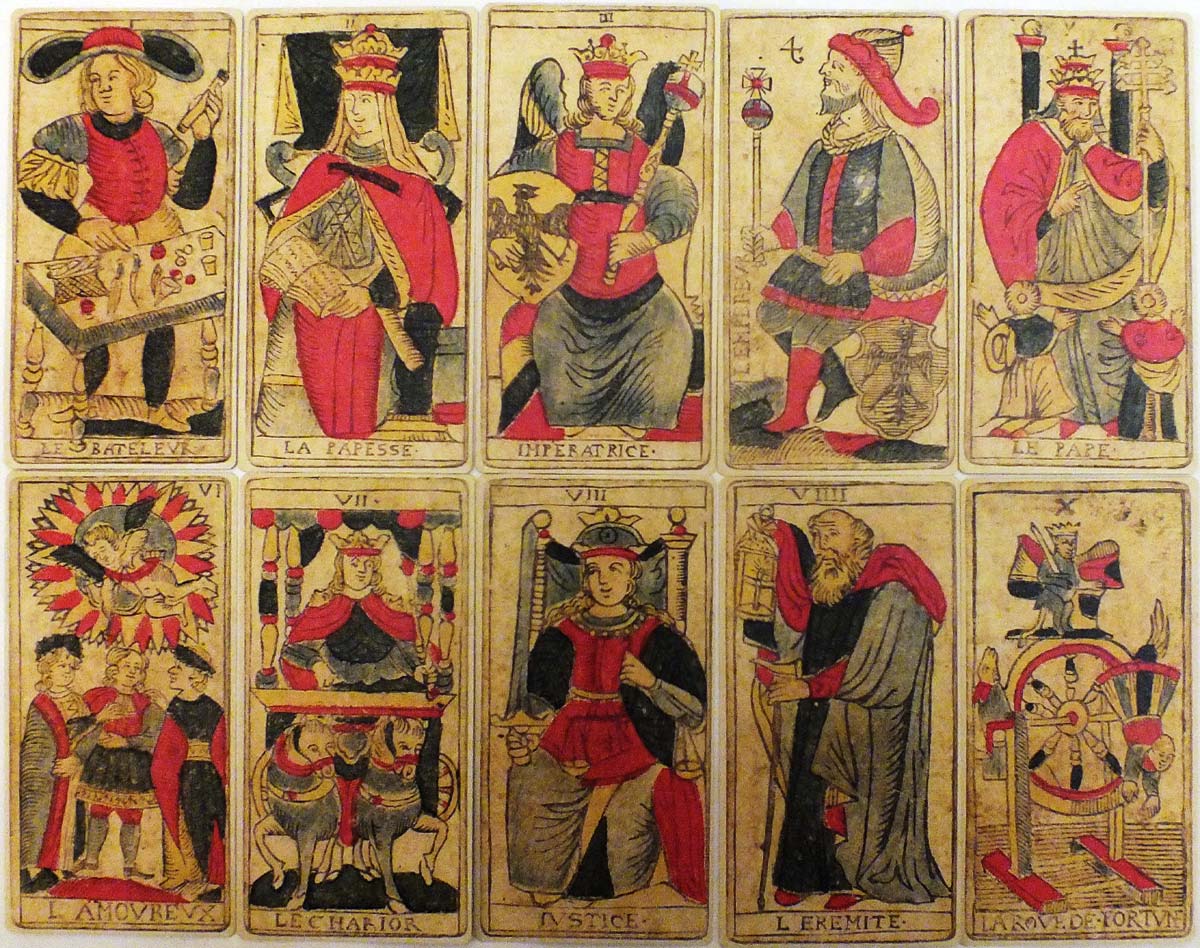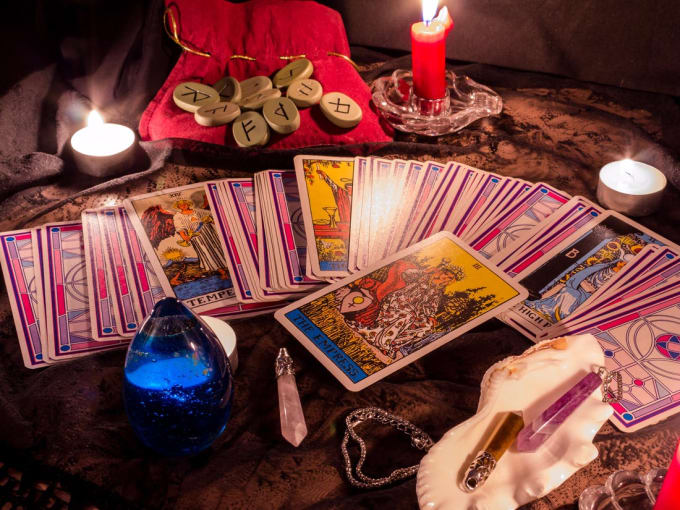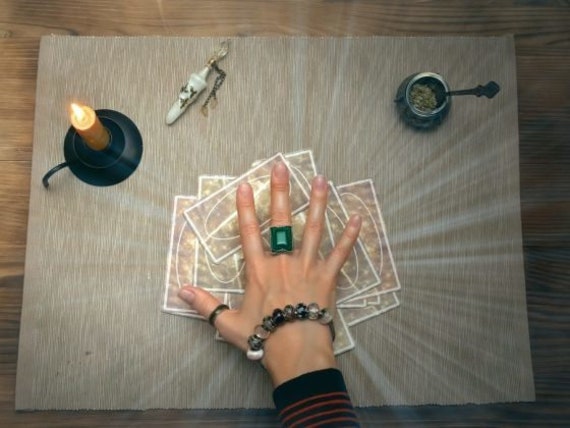- Total £0.00
Are Tarot Readings Real? The Power of Symbols as Guides
Are Tarot Readings Real? The Power of Symbols as Guides
Throughout the annals of history, the allure of the mysterious and the ethereal has perennially captivated human hearts and minds. Central to this intrigue stands the art of Tarot. Its transformation from a mere parlor game into a potent tool for psychological introspection and creative journey around the 1750s adds to its enigma. As its image morphed and people began to perceive the cards in a mystical light, an enduring question arose: Are Tarot readings a genuine window into the unseen? Dive with us into the depths of Tarot's rich tapestry, as we explore its truths, dispel its myths, and unveil its multifaceted role in our lives.
The Nature of Tarot

At its core, Tarot isn't about predicting a set-in-stone future but rather acting as a reflective tool. The deck, comprising 78 intricate cards, mirrors our subconscious, presenting symbols and narratives that echo our thoughts, feelings, and situations. When posed with the question of Tarot's 'realness,' it's essential to grasp that its authenticity isn't about concrete prophecies but about its profound ability to resonate with our internal compass.
The Role of the Reader
The Tarot reader stands as a crucial bridge between the querent (the individual seeking answers) and the profound symbols etched onto each card. Their mastery is not in predicting specific future occurrences but in discerning and articulating the tapestry of symbols within a given context. This allows the querent to gain clarity, delve deep into introspection, and potentially chart a more informed course ahead. However, the efficacy of a Tarot reading is not solely dependent on the reader's prowess; it hinges significantly on the querent's mindset as well.

To truly benefit from a Tarot session, one must embrace the idea that our world is replete with dimensions and energies that transcend what our physical eyes perceive. Tarot thrives on the notion of our interconnectedness to a divine cosmos, and the omnipresent energies that course through all things. When a querent approaches a reading armored with skepticism, it could impede the reader's ability to forge a genuine energetic connection, thereby diminishing the potency of the insights garnered. It's essential to understand that Tarot readings aren't prescriptive narratives to be accepted verbatim but are guiding beacons illuminating one's life journey. Those unwilling to entertain the existence of the unseen might find Tarot readings less impactful, if not altogether misaligned with their worldview.
Tarot as a Guiding Tool
Why do so many find solace and guidance in Tarot readings? The answer lies in its universal symbols. These symbols, ranging from The Fool's journey to the balancing scales of Justice, encapsulate life's myriad experiences and emotions. When we seek a Tarot reading, we're often at crossroads, facing dilemmas or seeking deeper understanding. The cards, in their wisdom, reflect our internal states, nudging us towards introspection and, ultimately, realization.
Consider Tarot as a wise friend. While they won't tell you what the future holds with certainty, they will offer insights, perspectives, and perhaps even make you consider aspects you hadn't thought of before.
The Caveat: Free Will and The Fluidity of Life
Here's where discernment is crucial. Tarot does not, and should not, override one's free will. Life is fluid, and our choices shape our trajectories. Tarot cards give insight into the currents of the present moment, offering guidance based on the energies at play. They aren't deterministic scripts but rather suggestive pathways. Recognizing this ensures that individuals harness Tarot's wisdom while also taking personal responsibility for their choices.
The Empirical Evidence: Is It All Placebo?

Skeptics often ask if the efficacy of Tarot is merely a placebo effect. Even if that were the case, the placebo effect in itself is a testament to the power of belief and the mind-body connection. If a reading empowers someone, offers them clarity, or aids in decision-making, its therapeutic value cannot be denied.
Additionally, many seasoned Tarot readers and enthusiasts can recount personal anecdotes where the cards' guidance was eerily accurate or profoundly impactful, pointing towards a realm of understanding beyond mere coincidence.
Concluding thoughts?
The question, "Are Tarot readings real?" is one imbued with layers of complexities and interpretations. While they might not lay out a preordained future for us, Tarot cards serve as profound mirrors, casting light on our deepest emotions, dilemmas, desires, and dreams. They tap into the age-old belief of our connection to a universe rich with unseen energies and interconnected truths. With a practiced reader at the helm, the Tarot transforms into a guiding compass, shedding light on hidden paths and beckoning us to harness our innate well of intuition and wisdom. At their core, Tarot readings are an invitation to introspection and self-discovery, a journey both spiritual and deeply personal.

